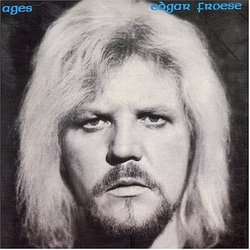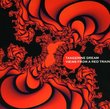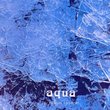| All Artists: Edgar Froese Title: Ages, Edgar Froese Members Wishing: 2 Total Copies: 0 Label: Virgin Int'l Release Date: 2/23/2004 Album Type: Import Genres: Dance & Electronic, New Age, Pop Styles: Ambient, Electronica, Dance Pop, Adult Alternative Number of Discs: 1 SwapaCD Credits: 1 UPC: 766482885640 |
Search - Edgar Froese :: Ages, Edgar Froese
 | Edgar Froese Ages, Edgar Froese Genres: Dance & Electronic, New Age, Pop
This CD will appeal to fans of Paul Ellis, Ian Boddy, Ron Boots, and Mark Dwane. It is an e-music essential from the frontman for Tangerine Dream. Originally released in 1977. EMI. 2004. |
Larger Image |
CD DetailsSynopsis
Album Description This CD will appeal to fans of Paul Ellis, Ian Boddy, Ron Boots, and Mark Dwane. It is an e-music essential from the frontman for Tangerine Dream. Originally released in 1977. EMI. 2004. Similar CDs
|
CD ReviewsGood early solo Froese M. Bergeron | Colchester, VT United States | 08/29/2004 (4 out of 5 stars) "While a few of the tracks on this disc sound VERY dated(tho better than the tepid Stuntman), it is still a good example of Froese's earlier solo work. The CD also leaves off one track included on the original vinyl version. Beginners should look for Aqua, or Macula Transfer." Froese's 1977 release David H. Douglas | NY | 08/02/2005 (5 out of 5 stars) "This album from 1977 by Edgar Froese is just as good as his other solo works. This cd is a double length record. It fits in between Aqua and Stuntman in style. It combines themes and techniques from both. The second part of Tropic of Capricorn is awesome! I recommend this cd to all fans of Tangerine Dream." Best forgotten Steve Benner | Lancaster, UK | 05/23/2008 (1 out of 5 stars) "Edgar Froese's double (vinyl) album, "Ages", was an immediate and resounding flop when it was released in 1978 and accordingly it quickly disappeared from Virgin's catalogue. Unavailable for many years, just why anyone should see fit to re-release it on CD is a complete mystery to me. The fact that there are now two totally different CD re-releases available (with little on the packaging to indicate the differences) merely serves to deepen that mystery.
The original CD release (with an image of Edgar staring disconcertingly from the sleeve) was an unaltered single-CD copy of the original 2-disc vinyl set. Due to a lack of space, the final track of the vinyl release was omitted from the CD. The new, 2005 release features heavily re-worked versions of the music, with the tracks presented in a new running order and the missing 'Golgatha and the Circle Closes' restored to the collection at the expense this time of 'Children's Deeper Study'. The new disc can be distinguished from the older by means of the large black and white border to the cover photo (this time a moody shot of Edgar from the back of the earlier sleeve) and the use of the artist's midde initial, "W", in the album credit. Listening to this disc 30 years after its first release, the reasons for its lack of popularity remain obvious and sadly there is little about it to recommend either edition even now. In common with many of Froese's solo offerings, (and in truth, this isn't really a solo album because Klaus Krieger contributes the drumming) the material here comes across as unimaginative, unfinished and, mostly, just plain tedious. Few of the tracks sound to be anything other than simple musical sketches -- mere ideas jotted down onto tape. The catalogue of criticisms is long: none of the works show any real signs of development -- opening ideas are merely continued through to each track's close without change. The rhythms are all kept simple and, again, are mostly unvaried throughout. The synthesiser voices and electronic timbres are unimaginative and quickly tire the ears. Most of the tunes are trite and tend to be repeated ad nausiam, over equally trite and tedious chord progressions! Some of the worst excesses have been addressed in the revised edition but unfortunately, it takes rather more than a punchier remastering or the addition of some more percussion lines or vocally textured washes to really rescue much of this material. What most of the tracks needed was some serious pruning back and that is something which Froese has seen fit to apply to only one track, with the long and rambling 'Metropolis' axed from 11 mins to just over 5. (This revised version will be familiar to anyone who has the "Beyond the Storm" or "Ambient Highway, Vol. 4" compilations.) And whilst the additional treatments are generally nothing like as heavy or as overpowering as those applied on the other 2005 re-releases of Froese's early solo discs (such as "Epsilon in Malaysian Pale", or "Macula Transfer") there are times when they are every bit as damaging to the original. Even in its revised form, this remains a disc with very little to say, but all the time in the world in which to say it. In fairness, the disc does have its good moments but unfortunately these are too few and far between to be other than quickly forgotten in the tedium of the whole. Mostly, it all just comes across as overly long and rather pretentious. Tangerine Dream enthusiasts will recognise some elements from TD albums of this period and may find the CD of some small interest. Collectors of Edgar Froese's music will no doubt want a copy (of both editions) in their collection. Anyone else, though, would do well to avoid this one!" |

 Track Listings (8) - Disc #1
Track Listings (8) - Disc #1

